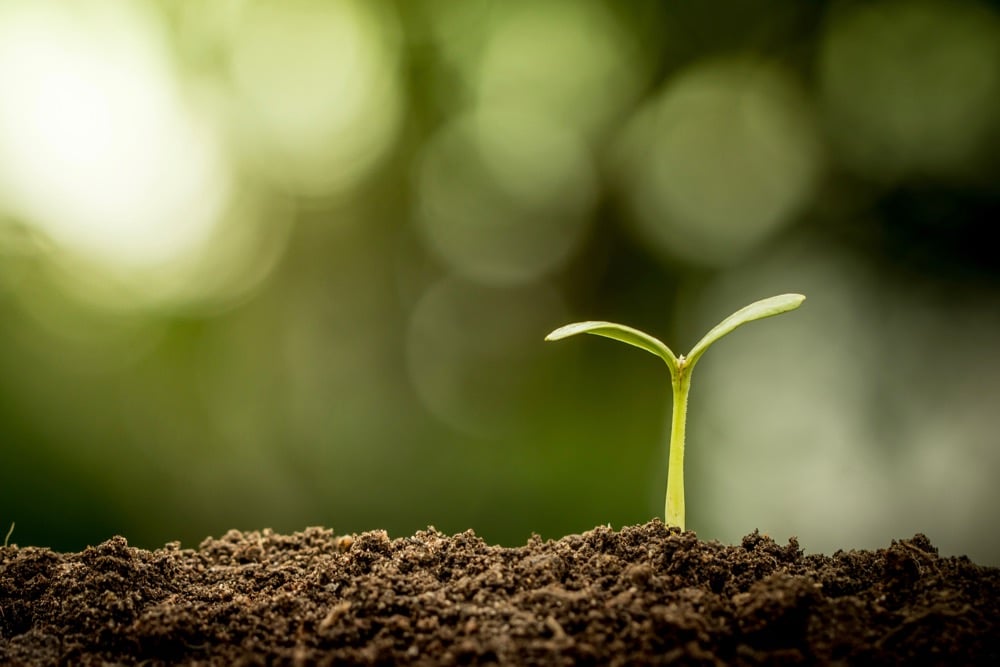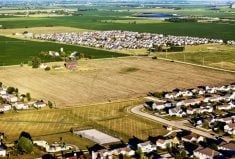Ontario’s grain farmers have launched an ominous, American-style attack ad aimed at Canada’s prime minister.
“You’ve already seen the empty shelves. The food supply chain is breaking,” says the advertisement, which comes from Grain Farmers of Ontario (GFO).
A worried-sounding narrator talks about food shortages over visuals of ramshackle barns.
The ad (see below), which will play on television and radio, lauds the actions of American President Donald Trump in sending $19 billion to farmers, while saying “Trudeau has been asking farmers to go more and more into debt.”
Read Also

Ontario’s agri-food sector sets sights on future with Agri-Food 2050 initiative
The first-ever Agri Food 2050, a one-day industry event dedicated to envisioning the future of food and farming in Ontario,…
Why it matters: Farm organizations have taken careful steps to maintain good relations with government, but the GFO campaign could change that.
“The whole point is we’ve been seen as the nice guys all the time,” says Markus Haerle, chair of the board of the GFO. “Realistically today we have to stop being that nice farmer in the countryside who waves to everyone. We can’t afford to do that.”
“We at GFO always been up front about pushing harder than other commodity groups in Ontario and Canada. We’re hoping at a certain point other commodity groups will tag onto this campaign. We’re spending millions of dollars on this and this is step one.”
Haerle, a St. Isidore farmer, says the grain value chain problems produced by COVID-19 “are a struggle for everybody, but it is all being downloaded to the grain farmer.”
He says ethanol plant contracts with farmers are being broken, so they have to find new markets for their corn, or continue to store it.
Ethanol plant production has dropped to about half of normal production and they are not buying much new corn. Feed markets are down as well as livestock and poultry production declines, says Haerle, who says that most crops have been planted in his area, well ahead of last year’s challenging planting season.
Corn and soybean prices have declined since the COVID-19 pandemic started and at the current price of corn, farmers in Ontario will lose about $130 per acre, says Haerle. “We’re talking about $4 corn. That’s way below cost of production.”
Corn and soybean prices were already moving lower before COVID-19 hit due to U.S.-China trade disputes and large carryout of both crops.
Grain farmers have not been able to garner the same amount of funding attention from the government as Canadians who have lost their jobs, students and other farmers.
The Canadian government recently announced a $255 million program to help farmers, but most of that money is aimed at the livestock sector, where processing plant closures have meant animals back up onto farms, where farmers either have to find other markets, keep feeding them, or euthanize them.
The advertisement asks for financial help for farmers to support their business practices.
“It takes millions of dollars to put crops in the ground, but prices are unstable and collapsing. Why should farmers shoulder that risk alone?” the video asks.
The video says that Donald Trump is shoring up the American food supply while Trudeau stands by “while Canada’s farms and food supply collapse.”
“When the farms and farmers are gone. Where are we going to get our food?” it asks.
When asked if Ontario’s farms were going to disappear, Haerle said lower prices mean some farmers are going to have to change their cropping plan, including growing other crops and using less fertilizer or sprays.
The advertisement targets other long-time GFO concerns with the federal government, including carbon taxes, which increased April 1.
The organization on its website outlines what it is looking for from government, which involves shoring up depleted risk management programs, including:
- Fully fund the Risk Management program (an Ontario program which the federal government has never signed onto),
- Restore the AgriStability program to 85 per cent, with no reference margin limits,
- Restore the AgriInvest program to five per cent.
GFO also recently released a survey of 1,091 of its members, taken between April 28 and May 2 that said:
- 86 per cent expect their net income to be reduced in 2020,
- Over half of grain farmers are already seeing a reduction in sales and another 24 per cent are experiencing cancellation or delays of existing contracts,
- One third are experiencing cash flow challenges and another third expect cash flow issues in the near future,
- 55 per cent fear that they will have an inability to cover the cost of production,
- 77 per cent of grain farmers want to see government support equivalent to what the U.S. is giving its farmers.















